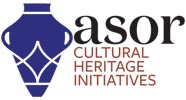

WEEKLY REPORT 33
March 23, 2015
U. S. Dept. Cooperation Agreement Number: NEA-PSHSS-14-001
BY Michael D. Danti, Matt Trevithick, Tate Paulette, Allison Cuneo, Kathryn Franklin, and David Elitzer
DOWNLOAD: REPORT
* This report is based on research conducted by the “Safeguarding the Heritage of the Near East Initiative,” funded by the US Department of State. Monthly reports reflect reporting from a variety of sources and may contain unverified material. As such, they should be treated as preliminary and subject to change.

Executive Summary
During the reporting period, ISIL continued its accelerated campaign of performative deliberate destructions of religious heritage sites in northern Iraq and Syria. Recent video footage and photographs released by ISIL make most reports readily verifiable; in February and March, however, there have been a number of unverified reports posted by Iraqi sources. These reports lack video/photographic evidence and have not as yet been claimed by ISIL. In Aleppo, unidentified attackers have allegedly detonated two tunnel bombs in the UNESCO World Heritage Site Ancient City of Aleppo. While these reports are credible, ASOR CHI has been unable to verify these attacks, establish details, and assess the resulting damage. In the past, factions within or associated with Islamic Front (e.g, Liwa al-Tawhid, Jabhat al-Shamiyya) have been responsible for most of these highly destructive deliberate (often performative) attacks on heritage places. Militants claim they carry out such attacks based on military necessity and also cite tunnel bombings as effective reprisals in response to SARG’s well documented use of barrel bombs and airstrikes in the densely settled urban areas of Aleppo and other towns and cities. Barrel bombs represent another highly destructive form of deliberate attack in which heritage places are frequently targeted.
The results of the first rapid response survey designed by ASOR CHI and implemented by the Syrian Research and Evaluation Organization (SREO) are now available (see below). This ten-question survey is designed to investigate antiquities looting, sales, and trafficking in Syria and northern Iraq. The first survey, comprising 100 responses from the area of Raqqa, Syria, confirms the ubiquity of antiquities theft, its profitability, and its facilitation by foreigners — here understood to be ISIL. The survey supports previous claims that ISIL has been taxing revenues/rights to loot, traffic, and sell antiquities and claims that the organization has been outsourcing cultural property crime.
Key points from this report:
- ISIL continued its accelerated campaign of performative deliberate destructions of religious heritage places in northern Iraq and northern and eastern Syria. (pp. 19–24, 44–58)
- The results of the first ASOR CHI/SREO rapid survey on antiquities looting, sales, and trafficking are now available. The survey confirms previous claims of ubiquitous looting in the Raqqa area facilitated by ISIL. (pp. 9–13)
- There have been two credible but unverified reports of tunnel bomb detonations in March in the UNESCO World Heritage Site Ancient City of Aleppo. (p. 41)